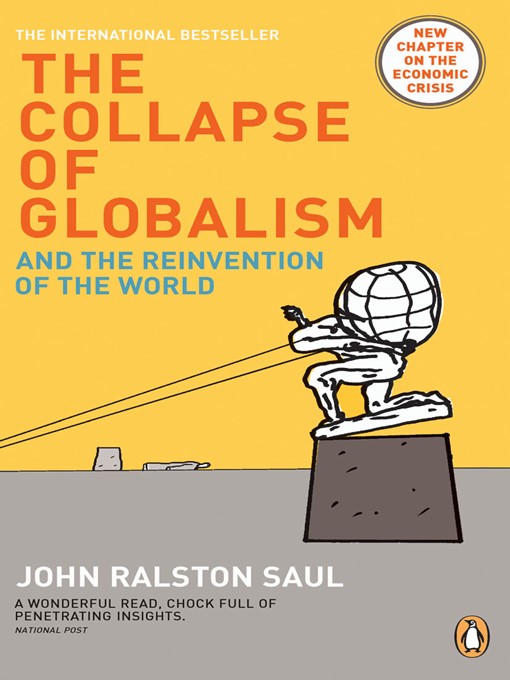In 1999, John Ralston Saul began predicting that globalism would collapse. In 2005, he laid out this scenario in The Collapse of Globalism: and the Reinvention of the World Now he has enlarged the book, showing how today's crisis came about and suggesting what to do next.
In this new edition, Saul describes the current financial crisis as a mere boil to be lanced. The far more serious problem is that the West—driven by most of its economists, managers, consultants, and columnists—remains stuck on outdated ideas of growth, wealth creation, and trade expansion. They are still trying to limit the debate to a narrow choice between protectionism and free trade and are concentrated on old-fashioned stimulation.
Public policy has been dominated by the people who created this crisis. Saul envisions a new sort of wealth creation and growth, and in place of reaction, advocates new forms of action.


